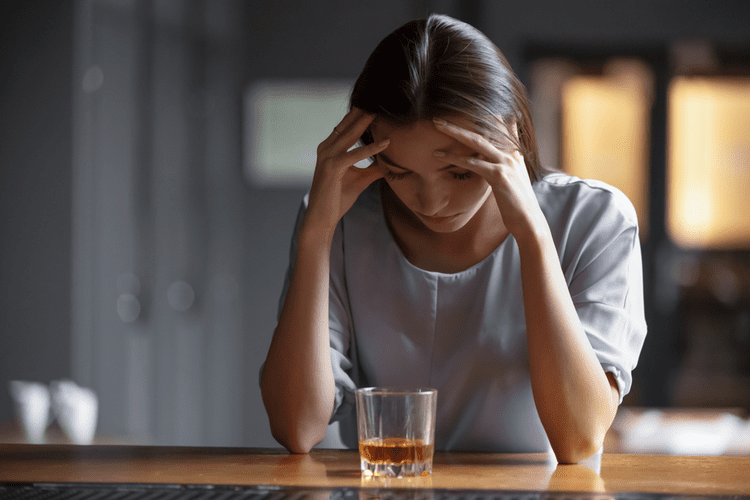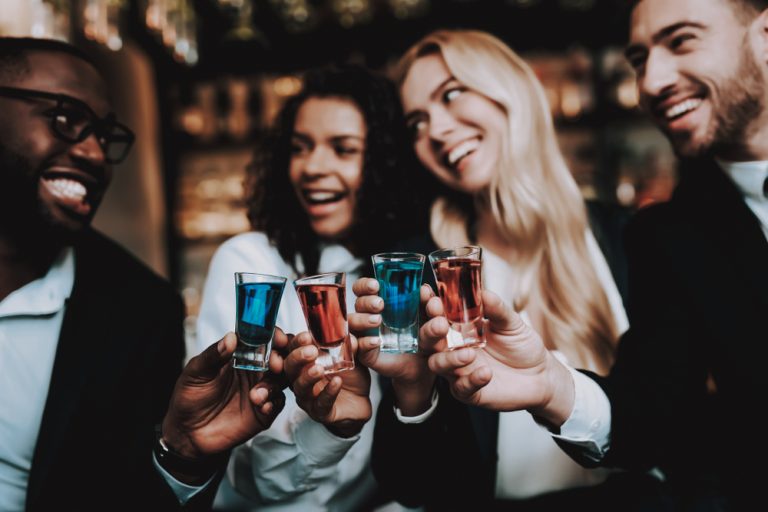People with insomnia may have difficulty falling asleep or keep waking up during the night. Worst of all, alcohol blocks REM sleep, considered the most impactful phase of the sleep cycle. REM sleep is known to be the optimal restorative portion of sleep. So drinkers often feel groggy and unrested even after a long night of ‘drunken’ slumber.
- Avoid anything with sugar or caffeine that could further disrupt your sleep.
- While some of these changes can be uncomfortable for some time, they will eventually begin to improve the longer you abstain from alcohol use.
Mental Health Effects When You Stop Drinking
Over time, drinking can also damage nerve cells and contribute to a loss of brain volume. This may be more pronounced if you often use alcohol as a way to manage existing sleep problems. Unfortunately, while alcohol may make it seem like you are falling asleep quicker, it can also lead to worse sleep quality. One of the most common side effects of giving up alcohol is insomnia.This is because alcohol acts as a sedative, so when it’s no longer in your system, you may have trouble falling asleep or staying asleep.
Police Killings of Unarmed Black People Impact Sleep Health of Black Community
There are some symptoms of withdrawal, including nausea, tremors, and depression. It is often partly caused by the coinciding sign of anxiety, which sends the mind racing and makes it incredibly difficult for the person withdrawing to sleep. They may believe it reduces their anxiety over the day’s events and helps them get to sleep. If this pattern repeats daily, a person is more likely to become dependent upon alcohol to fall asleep.

Insomnia After Quitting Alcohol: A Detailed Look at Causes and Solutions
Sleep architecture is biologically driven and finely calibrated to meet the body’s needs during nightly rest—changes to the natural, typical structure of sleep aren’t generally good for health or well being. REM sleep, which gets shortchanged in the first half of the night under the influence of alcohol, is important for mental can’t sleep without alcohol restoration, including memory and emotional processing. For many people who drink moderately, falling asleep more quickly may seem like an advantage of a nightly glass of wine. But alcohol goes on to affect the entire night of sleep to come. If you still can’t seem to get good rest, then you might have a sleep disorder.

Your dietary choices significantly affect the quality of your sleep. Consuming balanced meals throughout the day, avoiding caffeine, sugar, and heavy meals close to bedtime can go a long way in improving sleep quality. Creating a consistent pre-sleep routine can also be effective for dealing with insomnia after quitting https://ecosoberhouse.com/ alcohol. These methods include activities such as reading a book, listening to soothing music, or taking a hot bath. This sudden overactivity can result in disturbed sleep and insomnia. Think of it as the brain’s way of protesting against the sudden absence of a depressant (alcohol) it had grown accustomed to.
Daytime Brain Wave Patterns May Explain How Memories Are Stored During Sleep
You might also want to cut down on the number of nights you drink to give your body more chances of getting a good night of alcohol-free sleep. We’ve covered more on how long before bed to stop drinking alcohol here. They may recommend different treatments for different types of insomnia. There are ways to stop alcohol from messing with your sleep, though. And, as long as you don’t have an alcohol use problem, you may not have to give up drinking altogether.

Insomnia After Quitting Alcohol
While occasional social drinking may not result in significant changes when you decide to quit, you may experience more significant effects if you have been drinking heavily for an extended time. When a person drinks alcohol, doing so in small or moderate amounts several hours before sleep can reduce the chance of sleep issues. Treating anxiety can help reduce insomnia and improve overall sleep quality.
- However, the alcohol will continue to damage their sleep cycles, and the problem will not get better.
- It’s important to note, however, that these are usually a short-term solution and should be used under a healthcare provider’s guidance.
- Aim for moderate-intensity workouts like brisk walking or swimming most days of the week, but avoid stimulating activity close to bedtime.
- RISE can make this second nature by telling you when to do 20+ sleep hygiene habits at the time that’ll make them most effective for you.
- If you’re a heavy drinker, you’re at an increased risk of developing certain diseases, such as cancer, heart disease, and stroke.
- Although working out might seem counterintuitive during withdrawal, regular exercise can significantly improve your sleep quality.
Can’t Sleep Without Alcohol? 5 Alternatives to Try
Research also suggests that alcohol-induced sleep disorders may include sleep apnea and potentially contribute to sleepwalking, although there is no direct evidence that alcohol causes narcolepsy. The interplay between alcohol consumption and sleep disorders is a critical area of concern for both individuals and healthcare professionals. Research has consistently demonstrated that excessive alcohol intake is correlated with poor sleep quality and can lead to or exacerbate a variety of sleep disorders. Studies show that alcohol affects the homeostatic drive that regulates sleep, disrupting the onset and maintenance of sleep and leading to issues such as insomnia.